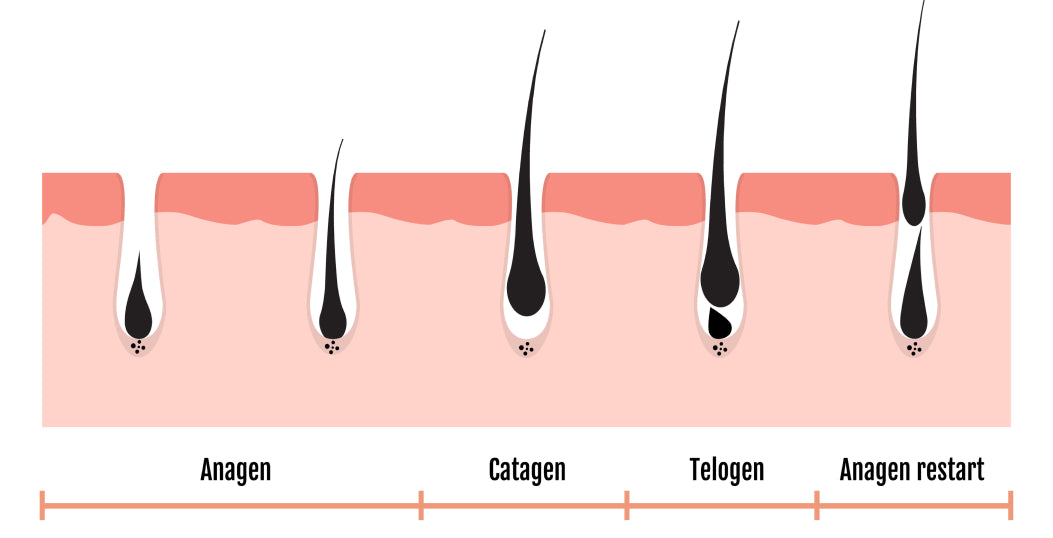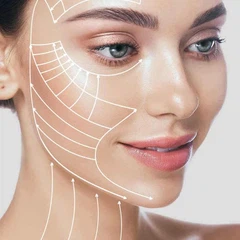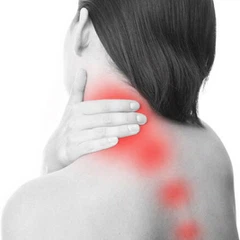In the pursuit of smooth skin, hair removal is a common choice for many. From traditional shaving and waxing to depilatory creams, there are countless methods available, but most offer short-lived results, require repeated application, and pose safety concerns. Consequently, laser hair removal, touted as a "permanent solution," has garnered widespread attention. However, a core question lingers: Does laser hair removal truly work?
The answer is: Yes, laser hair removal is highly effective, but it's not magic. Its effectiveness is affected by numerous factors, and our understanding of "permanence" requires a more scientific and rational approach.
How does laser hair removal work?
To understand its effectiveness, it's important first to understand how it works. Laser hair removal utilizes the principle of "selective photothermal therapy."
-
Targeting:
A diode laser emits light energy of a specific wavelength, which is selectively absorbed by the melanin pigment in the hair follicle.
-
Energy Conversion:
When the laser light is absorbed by the melanin pigment in the hair shaft and follicle, it is converted into heat, precisely destroying the hair follicle's regenerative structure, specifically the "hair follicle stem cells" responsible for hair regeneration, thereby inhibiting hair growth.
It's essential to note that laser treatment doesn't merely remove hair on the surface; it penetrates deep into the root of the hair follicle, destroying it at its very source, thereby addressing the root cause of hair regeneration.
How is effectiveness demonstrated?
Significant Hair Reduction:
After a full course of treatments (usually 6-8 sessions), the number of hairs in the treated area will be significantly reduced, with a typical clearance rate of 80%-90%.
Thinning and Lightening of Hair:
Even if some hair regrows, it will be very fine and light in color, almost like down, and virtually invisible.
Extended Growth Cycle:
Hair no longer grows as rapidly as before, but grows much more slowly. You may need to go from shaving weekly to only once every few months or even longer.
Smoother Skin:
Long-term treatment can effectively prevent folliculitis, hyperpigmentation, and ingrown hairs caused by shaving and waxing, leaving skin feeling smoother to the touch.
Why can't laser hair removal achieve 100% "permanent" hair removal for everyone?
The effectiveness of laser hair removal varies from person to person, primarily influenced by the following factors:
-
The contrast between skin color and hair color:
This is the most important factor. The ideal candidate for laser hair removal is someone with light skin and dark hair. Because laser light targets melanin, if your skin is very dark, the melanin in your skin will compete for the energy, reducing effectiveness and increasing the risk of burns. Conversely, if your hair is very light (such as white, blond, or gray), the laser is virtually ineffective due to a lack of melanin as a target.
-
Hair Cycle:
Growth
During this phase, hair follicles are active, hair roots are well-nourished, melanin content is highest, and hair is most sensitive to the light from the hair removal device, making it the optimal treatment period.
Catagen
During this phase, hair follicles begin to shrink, hair growth ceases, melanin levels decrease, and light absorption capacity decreases.
Telogen
During this phase, hair follicles enter a "dormant" phase, and the hair naturally falls out. During this stage, melanin is almost nonexistent, limiting the effectiveness of hair removal devices.
At any given time, some hairs on the skin are either in the "insensitive" catagen phase or the resting phase, leaving only approximately 20-30% in the anagen phase. Therefore, multiple treatments are required to cover all anagen phases, gradually deactivating the hair follicles.

-
Treatment Techniques and Equipment:
Professional equipment from professional medical institutions (with more stable energy and more precise targeting, resulting in far superior effectiveness and safety compared to home hair removal devices).
-
Operator Expertise:
An experienced doctor or technician can adjust the appropriate energy parameters based on your skin type and hair condition, ensuring safety and effectiveness.
-
Hormone Levels:
Fluctuations in androgen levels (such as those associated with polycystic ovary syndrome, pregnancy, and menopause) can stimulate new hair growth. Even if treatment was previously successful, subsequent hormonal fluctuations may cause new hair to grow, but this does not constitute treatment failure.
The Scientific Definition of "Permanent"
The U.S. Food and Drug Administration (FDA) certifies laser hair removal as "permanent hair reduction," not "permanent hair removal."
Are you really suitable for laser hair removal?

Suitable candidates for laser hair removal
-
Dark hair and fair skin:
This contrast allows the laser to effectively target hair follicles while minimizing damage to surrounding skin.
-
Seeking long-term hair reduction:
Multiple laser treatments are necessary for optimal results.
-
Can tolerate sun avoidance:
If you can tolerate avoiding tanning beds and sunlight before and after treatment to prevent complications such as discoloration or burning.
Who should avoid laser hair removal?
-
Pregnant or breastfeeding women:
There is currently insufficient data to prove the safety of laser hair removal during pregnancy and breastfeeding, and hormonal changes can reduce the effectiveness of treatment.
-
Individuals with certain medical conditions:
Contraindications include photosensitive epilepsy, lupus, bleeding disorders, and other conditions that affect skin healing or photosensitivity.
-
Individuals taking photosensitizing medications:
Certain medications can make your skin more sensitive to light, increasing the risk of an adverse reaction.
-
Individuals with recent tans or sunburns:
The increase in melanin in sun-exposed skin can lead to adverse effects and potential side effects.
-
Individuals seeking fast and permanent hair removal:
Laser hair removal is a process that requires multiple treatments and maintenance; it is not a one-time, quick fix.
Laser hair removal is a long-term treatment
To achieve optimal results, you must patiently complete the entire treatment course.
Choice over price
Always choose a reputable, reputable medical institution and an experienced operator.
Don't overlook safety considerations in the pursuit of cost-effectiveness.
Perform thorough pre- and post-operative care
Strictly protect yourself from the sun before and after treatment, avoid other hair removal methods (such as plucking or waxing) during treatment, and follow your doctor's instructions to ensure results and avoid side effects.

Conclusion
Laser hair removal is a proven and highly effective medical cosmetic technique. As long as you meet the indications and approach the treatment with a scientific attitude and the right approach, it can help you avoid the hassle of frequent hair removal and achieve long-lasting, smooth skin.

Looking For An Efficient And Reliable Laser Hair Removal Solution?
As a professional manufacturer of laser hair removal beauty equipment, we are committed to providing high-performance and high-safety laser equipment to medical beauty institutions, skin clinics and distributors around the world.
Related hair removal articles:











